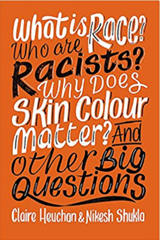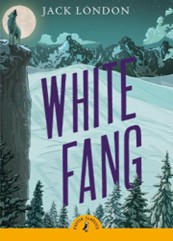Year 6
Year 6 class is taught by Mrs Claire Merrifield and
Mrs Caroline Dinham (Friday only).
Teaching and learning is supported by Mrs R Cutler.
This matrix shows the learning in Y6 across all subjects.
Y6 Lanner Matrix 1 overview 25-26
Year 6 class is taught by Mrs Merrifield and Mrs Dinham (Fridays only)
Teaching and learning is supported by Mrs Cutler.
Please contact us via the school office or Class Dojo if you have any questions.
Spring 2 2026
This half term, let’s take a tour of North America as we begin to track the journey of White Fang (part-dog and part-wolf, and the lone survivor of his family) written by American author, Jack London. Published in 1906, this book is set in Santa Clara Valley and the Yukon, c. 1896–99.
English
Reading will be taught daily (Talk for Reading) through our core text and each day they will immerse themselves in an English lesson examining and learning about the following genres: non-chronological reports, balanced argument and rap poetry.
We begin by exploring cheetah and owl non- chronological reports and innovate an independent report on wolves. Our balanced argument genre will cover debates on zoos and selective breeding. Rap poetry will begin with investigating where rap music originated. They children will then look at beats and rhythm and write their own raps for performance. Finally, our explanation unit will focus of analysing features of this genre around the topic of domesticating a dog.
Maths
As mathematicians, we will be learning and applying a wide range of maths skills, including revisiting the four written and mental calculation method during our daily ‘fluent in 5’ sessions.
This half term, we will focus on developing a secure understanding of fractions, decimals and percentages, including how they relate to one another. Pupils will apply these skills through a range of structured tasks and problem‑solving activities. We will then move on to perimeter, area and volume, where pupils will use their measurement skills to tackle practical and mathematical challenges. To conclude the term, we will study statistics, including calculating the mean and mode as measures of average.
Geography
In geography, we will study North America. We will use our ‘White Fang’ novel to launch us into North America itself. We will explore, compare and contrast climate zones, biomes and vegetation belts geographical terminology to describe the location and characteristics of a range of places across the Americas.
Science
Our science topic will be ‘Living Things and their Habitats’. The lessons are sequenced in small steps and by the end of the unit, all children should be able to achieve the following statements:
- Sort and group animals based on their features, using examples as a guide.
- Describe Carl Linnaeus and his development of his classification system.
- Place animals into given groups based on certain characteristics.
- Design a wolf-like creature with a specific set of characteristics.
- Name and model (using playdough in Petri dishes) types of microorganism.
- Set up an investigation into harmful microorganisms.
- Complete descriptions on the characteristics of groups of organisms, using images as prompts.
Art
This term, pupils will explore the art of photography through the work of Ansel Adams. They will study his iconic landscape images, focusing on how camera angles, composition and perspective create impact. Using digital devices, pupils will experiment with capturing “the big picture,” applying filters and editing techniques to enhance mood and meaning.
To broaden their understanding of artistic style, pupils will then compare Adams’ dramatic landscape photography with the miniature, street‑based installations created by Slinkachu. This contrast will help pupils consider how scale, viewpoint and intention shape the final image and influence the viewer’s experience.
Religious Education
During our RE sessions, we’ll be thinking about ‘What do Christians believe Jesus did to ‘save’ people?’
They will sequence events in Holy week in the gospel of Mark 14-15 and explore the meaning behind Jesus dying to save us. The children will finally explore the Christian belief that Jesus died as a sacrifice to save people from sin.
Computing
‘We are connected’ is our topic this half term. During the topic, the children will learn about appropriate rules or guidelines for a civil online discussion and how search results are selected and ranked. They will learn how to argue their point effectively, supporting their views with sources and how to counter someone else’s argument while showing respect and tolerance. They will consolidate their understanding of how to judge the reliability of an online source and develop some strategies for dealing with online bullying.
By the end of the unit, most pupils will be able to achieve the following statements:
- recognise the importance of respect and tolerance in online discussions
- explain how search results are selected and ranked
- write a post on a given topic, justifying their argument
- respond to points made in others’ posts
- evaluate the credibility of a source
- suggest what a pupil might do if being bullied
PE
In PE, Y6 will take part in Invasion games. The focus of the learning is to consolidate pupils’ understanding and application of attacking skills into game play. Pupils will consolidate their attacking skills to effectively pass and dribble to move the ball forwards and create successful shooting opportunities.
The focus of the learning for our 2nd PE session is for pupils to begin to understand what makes an effective leader. Pupils will be able to identify the different attributes that make an effective leader. Pupils will start to lead an activity for small groups of their peers.
Home-learning
In year 6, pupils will continue with their weekly maths homework and will be given a short Grammar task also. In addition, children still need to read lots! All children are expected to read at home most nights for 25 – 30 minutes either to themselves or with an adult.children still need to read lots! All children are expected to read at home most nights for 25 – 30 minutes either to themselves or with an adult. This could be their school Accelerated Reader book, listening to a story read by someone else or sharing a favourite book. All are equally valuable. Talking about what they have read is also vital to help develop comprehension skills. This is particularly beneficial to the children when completing their Accelerated Reader quizzes. All children have a reading record book in which parents, carers or the children themselves can record what they have read or make any comments.
For support maths in school, children all have access to Times Tables Rockstars for practising their weekly times tables at home. Please encourage your child to practice their times tables regularly – five or ten minutes a day is more beneficial than an hour once a week.
NB. On a Wednesday, formal maths homework (arithmetic paper) and grammar paper will be sent home and will be due in the following Wednesday. These will be marked in a small, booster groups to support understanding and address misconceptions.
2025-Checklist-50-Best-Books-Y6
Please do not hesitate to contact us with any questions you may have.
Many thanks for all your continued support.


